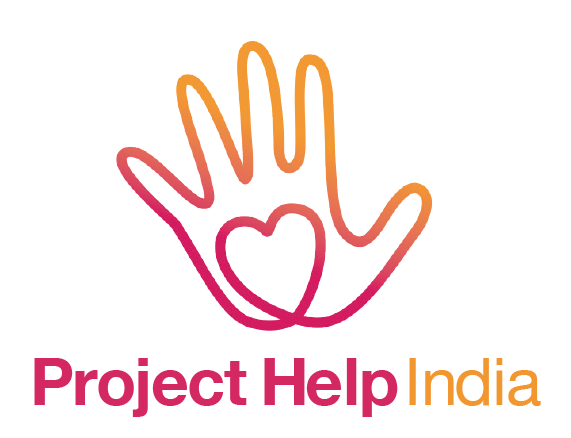Some of our City Centre students getting their hands dirty, potting seedlings while learning about World Environment Day 2022.
A child’s education brings purpose for their today and hope for their tomorrow. Through their learning and the safe and supportive environment that a school brings, we are transforming one precious life at a time. If we consider the impact of all teachers and schools globally there is incredible collective transformative power found in education. As Nelson Mandela famously said [1];
“Education is the most powerful weapon which you can use to change the world. ...The power of education extends beyond the development of skills we need for economic success. It can contribute to nation-building and reconciliation.”
At ‘Project Help India’ we recognise the privilege that we have in educating the now 315 children who come to our centres 5 days a week to learn and receive a nutritious meal.
“To come to school is the biggest gift that I’ve been given.”[2]
The kids who attend our schools do so with enthusiasm. They are respectful, cooperative and committed to their learning. They are also grateful knowing how lucky they are, because for most there is no other school to attend.
The mountain locations where Project Help works are remote, with many communities further isolated from town centres due to the mountainous terrain, poor roads, frequent landslides, extreme summer heat, monsoon flooding and dense jungle. The cost of fuel makes the daily motorbike ride into town prohibitive for most poverty-stricken families. If the school is within walking distance the kids, especially girls, are often unable to walk there for fear of animal attacks or being raped. There are similar challenges faced by the slum kids in urban areas too. Many boys and girls are unable to attend school because their parents are unemployed, requiring them to undertake labour and household chores, some are married at an early age, there is much family dysfunction, parent illiteracy, a fear of education, not to mention many are impacted by drug and alcohol addictions. To make matters worse, across 2020 and 2012 COVID forced the closure of many small schools, with teachers continuing to leave their jobs in large numbers.
From the data [3] we can source 5% of all primary aged children, and 6-7% secondary aged children in India have no access to a school education - this is approximately 5 million children.
In the surrounding areas where Project Help works, we estimate that there are approximately 50 small villages (with a population of less than 300) where there is no local school for the children.
Additionally, in these same areas of the 2250 local government schools, approximately 5% have less than 10 students, and most of these have closed down because of COVID. That’s 112 schools no longer in operation.
Source United Nations Sustainable Development Goals Report 2021 [4]
The impact of your donation
We are thrilled to report that across 2020 and 2021, our students were well cared for during the pandemic. Our Director reports;
In midst of everything, Project Help India played an important role in providing education during pandemic situations. When the children were forced to sit down at home, children from Project Help India assisted in community help programs. They assisted in ration packaging and distribution done by Project Help India to help poor and needy people which stopped many of them dying of hunger. Due to the negligence of many parents during this online period, the children across India have become addicted to phone, online games and social media and majorly pornography. This was also dealt in an orderly manner by Project Help India, by constantly providing them with interesting extracurricular work, teaching art and craft work, competition programs i.e. food cooking competitions, dance and song practice. We taught our students about their emotions and feelings, and also about the harmful affects of device addiction, pornography. We taught their parents about the need for constant monitoring of them. We also taught our slum kids about the dangers of the Kotdwara slum mafia and kept them safe from gangs, drugs and other harmful behaviours. Our community workers and teachers visited homes, monitored their lessons and welfare, keeping a constant watchful eye over them all.
All these activities have helped students to grow, socially interact, and remain in touch with their learning during the pandemic period. As all of our students belong to poor socio-economic groups, it can be duly noted that the loss of skills and learning due to pandemic is more at risk in our children than compared to others. Yet many of our students scored great results in their online and offline exams during the period of pandemic with the assistance of the teachers in our Project Help India.



